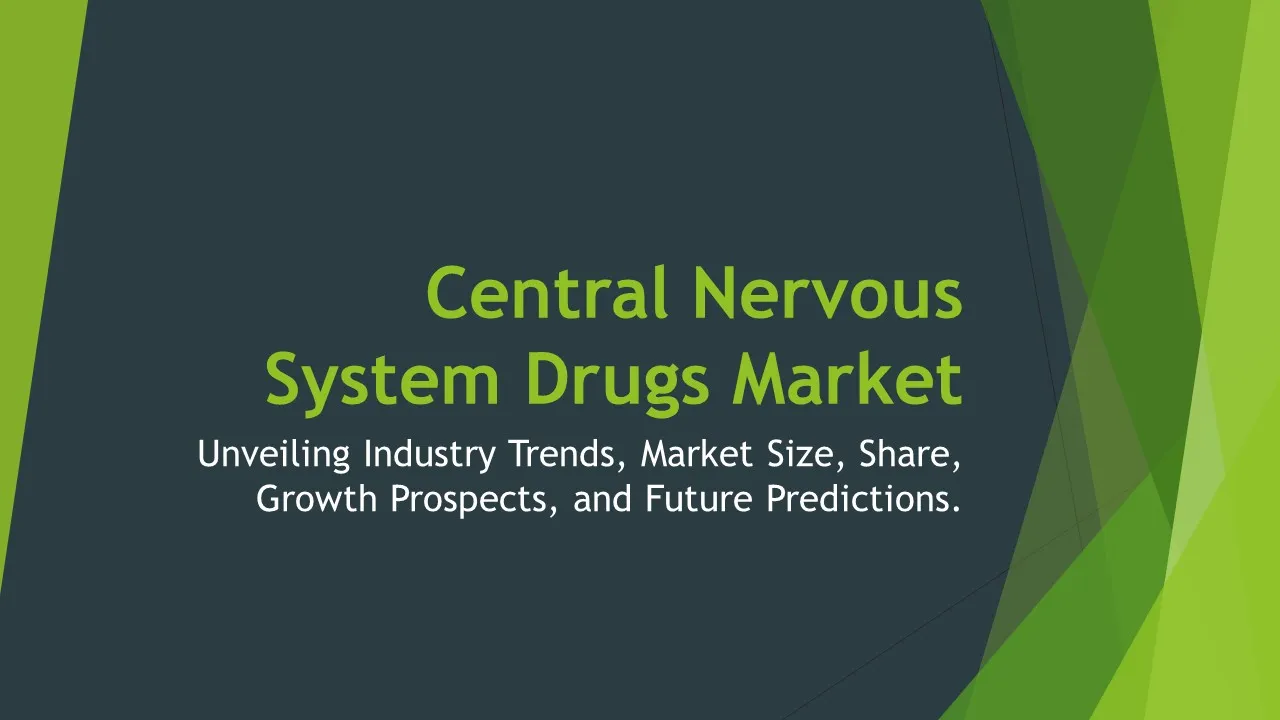Imatinib Mesylate Drugs
Imatinib Mesylate Drugs Market Segments - by Product Type (Branded Imatinib Mesylate Drugs, Generic Imatinib Mesylate Drugs), Application (Leukemia, Gastrointestinal Stromal Tumors), Distribution Channel (Hospital Pharmacies, Retail Pharmacies, Online Pharmacies), Ingredient Type (Imatinib Mesylate), and Region (North America, Europe, Asia Pacific, Latin America, Middle East & Africa) - Global Industry Analysis, Growth, Share, Size, Trends, and Forecast 2025-2035
- Report Preview
- Table Of Content
- Segments
- Methodology
Imatinib Mesylate Drugs Market Outlook
The global Imatinib Mesylate drugs market is projected to reach approximately USD 5.8 billion by 2035, growing at a compound annual growth rate (CAGR) of 7.5% during the forecast period from 2025 to 2035. This growth can be attributed to the rising prevalence of chronic myeloid leukemia (CML) and gastrointestinal stromal tumors (GIST), which are the primary indications for Imatinib therapy. Coupled with advancements in cancer treatment protocols and the increasing adoption of targeted therapies, there is a significant demand for effective treatment options. Furthermore, the growing awareness and accessibility of these medications in both developed and emerging markets, alongside supportive regulatory frameworks, are expected to bolster market growth. The availability of generic versions of Imatinib Mesylate is also likely to enhance market penetration in price-sensitive regions.
Growth Factor of the Market
Several key factors are propelling the growth of the Imatinib Mesylate drugs market. Firstly, the increasing incidence of CML and GIST has led to a heightened demand for Imatinib as the first-line treatment option, thereby driving market revenues. Secondly, ongoing research and development initiatives aimed at enhancing the efficacy and safety profile of Imatinib formulations are expected to create new growth avenues. Thirdly, the entry of biosimilars into the market has resulted in more competitive pricing, thus expanding patient access to treatment. Additionally, the rising geriatric population, which is more susceptible to cancer-related diseases, further fuels the market for these drugs. Lastly, the adoption of personalized medicine and targeted therapies in oncology gives an added impetus to the Imatinib Mesylate drugs market, as practitioners are increasingly opting for tailored treatment plans that include this drug.
Key Highlights of the Market
- The market is expected to grow at a CAGR of 7.5% from 2025 to 2035.
- Increasing prevalence of chronic myeloid leukemia (CML) and gastrointestinal stromal tumors (GIST) is driving demand.
- The availability of generic Imatinib Mesylate drugs is enhancing market accessibility.
- Research and development efforts continue to focus on improving the efficacy and delivery of Imatinib therapies.
- Global initiatives aimed at cancer awareness and screening are expected to increase early diagnosis, further driving market growth.
By Product Type
Branded Imatinib Mesylate Drugs:
Branded Imatinib Mesylate drugs are derived from the original patented formulation developed by Novartis, marketed under the name Gleevec. These products hold a significant market share due to their established efficacy and safety profiles. Patients often prefer branded medications due to their perceived reliability and the comprehensive support programs offered by manufacturers, including patient assistance programs. Furthermore, branded versions are often linked to treatment monitoring and adherence programs that enhance patient engagement and outcomes. The brand reputation also plays a crucial role in prescribing patterns among oncologists, contributing to sustained demand in regions with higher healthcare spending.
Generic Imatinib Mesylate Drugs:
The advent of generic Imatinib Mesylate drugs has transformed the market landscape significantly. Following the expiration of patents, various pharmaceutical companies have entered the market with cost-effective alternatives, thus expanding patient access to treatment. Generic drugs are typically more affordable and are often covered under various insurance plans, making them an attractive option for both healthcare providers and patients. The growing acceptance of generics among healthcare professionals, due to equivalent efficacy to branded counterparts, has further accelerated their uptake. Additionally, as healthcare systems become more cost-conscious, the demand for generics is likely to continue its upward trajectory, particularly in emerging markets.
By Application
Leukemia:
Leukemia, particularly chronic myeloid leukemia (CML), accounts for a substantial share of the Imatinib Mesylate drugs market. Imatinib is recognized as a cornerstone therapy for CML, revolutionizing treatment outcomes by targeting specific genetic mutations associated with the disease. The ability of Imatinib to induce a durable response in patients has made it a preferred choice among oncologists. Continuous advancements in the understanding of leukemia's molecular pathways are also supporting the ongoing use and development of Imatinib and its combinations with other therapies. As the global incidence of leukemia increases, driven by factors such as aging populations and environmental influences, the application of Imatinib for leukemia treatment will remain a key growth driver.
Gastrointestinal Stromal Tumors:
Gastrointestinal stromal tumors (GIST) represent another critical application area for Imatinib Mesylate drugs. These tumors, which arise in the digestive tract, are primarily driven by mutations in the c-KIT gene, making Imatinib an effective targeted therapy. Clinical studies have demonstrated that Imatinib significantly improves progression-free survival rates in GIST patients, solidifying its role as a first-line treatment option. The increasing incidence of GISTs and the ongoing research into their molecular characteristics are expected to enhance the market for Imatinib in this application area. Furthermore, the availability of clinical trials exploring combinations of Imatinib with other therapeutic agents is likely to broaden treatment options and potentially enhance patient outcomes.
By Distribution Channel
Hospital Pharmacies:
Hospital pharmacies serve as a primary distribution channel for Imatinib Mesylate drugs, ensuring that patients receiving inpatient care have direct access to essential therapies. These pharmacies are crucial in managing complex medication regimens for oncology patients, often collaborating with healthcare professionals to provide personalized medication management. Given the specialized nature of oncology treatment, hospital pharmacies are equipped to provide comprehensive patient monitoring and support services. As the prevalence of cancer increases, the role of hospital pharmacies in delivering Imatinib will become even more pronounced, with a focus on enhancing treatment adherence and minimizing medication errors.
Retail Pharmacies:
Retail pharmacies are another significant distribution channel for Imatinib Mesylate drugs, providing patients with easy access to their prescriptions post-discharge from hospitals. With the rise of chronic diseases and an aging population, retail pharmacies have become vital in ensuring that patients can receive their medications conveniently and efficiently. Many retail pharmacies offer counseling services, which can help patients understand their treatment plans and manage side effects effectively. Additionally, collaborations between retail pharmacies and healthcare providers for refill reminders and adherence support are gaining traction, further enhancing the accessibility and utilization of Imatinib therapy among patients.
Online Pharmacies:
The emergence of online pharmacies has transformed the distribution landscape for Imatinib Mesylate drugs, providing a modern solution to medication access. With the growing trend of digital health, patients can now order medications from the comfort of their homes, significantly enhancing convenience. Online pharmacies often offer competitive pricing and home delivery options, which can be appealing to patients who may face mobility challenges or reside in remote areas. However, the online pharmacy sector also necessitates rigorous regulatory oversight to ensure the authenticity and safety of medications, as patients seek assurance that they are receiving legitimate products. As e-commerce continues to expand within the healthcare sector, the role of online pharmacies in the Imatinib market is expected to grow significantly.
By Ingredient Type
Imatinib Mesylate:
Imatinib Mesylate is the active pharmaceutical ingredient (API) responsible for the therapeutic effects against CML and GIST. As a targeted kinase inhibitor, it specifically blocks the BCR-ABL protein, which is crucial for the proliferation of cancer cells in CML. The effectiveness of Imatinib Mesylate has been well-documented in clinical studies, demonstrating substantial improvements in patient survival rates and quality of life. The development of various formulations, including oral tablets and injectable forms, has expanded its usability across different patient profiles and preferences. As ongoing research continues to explore the full potential of Imatinib Mesylate in combination therapies and other oncology indications, its prominence as a go-to ingredient in cancer treatment is anticipated to persist.
By Region
The North American region holds a dominant share of the Imatinib Mesylate drugs market due to advanced healthcare infrastructure, high per capita healthcare expenditure, and a robust regulatory framework. The region is projected to witness a CAGR of approximately 8.2% through the forecast period, driven by the increasing prevalence of CML and GIST, along with a significant focus on research and development in oncology therapeutics. The presence of key pharmaceutical companies and a well-established distribution network further enhance the market landscape, providing patients with easier access to Imatinib therapies. In addition, collaborative efforts between public and private sectors aimed at improving cancer treatment accessibility are expected to contribute positively to market growth in this region.
Europe is also expected to contribute significantly to the global Imatinib Mesylate drugs market, fueled by rising awareness regarding cancer treatment and supportive reimbursement policies across several countries. The increasing incidence of CML and GIST in Europe, coupled with growing investments in healthcare and a surge in clinical trials, will likely drive the demand for Imatinib. The European market is projected to grow at a CAGR of around 6.7%, reflecting a consistent increase in the adoption of targeted therapies. Moreover, the presence of leading pharmaceutical companies engaged in developing advanced formulations of Imatinib is anticipated to enhance the market's growth prospects in the region.
Opportunities
There are numerous opportunities that can be leveraged in the Imatinib Mesylate drugs market. One of the most significant opportunities lies in the expansion of generics in emerging markets, where the cost barriers to access cancer treatment are often prohibitive. As healthcare systems in these regions evolve and regulatory frameworks become more conducive to the approval of generic medications, companies that can navigate these environments successfully stand to gain a competitive edge. Additionally, partnerships with local distributors and healthcare providers can help in effectively reaching underserved populations, thereby increasing overall market penetration. Furthermore, initiatives aimed at improving awareness and education about CML and GIST can lead to earlier diagnosis and treatment, which will enhance demand for Imatinib Mesylate drugs.
Another opportunity stems from the ongoing research and development efforts aimed at identifying new therapeutic indications for Imatinib Mesylate. For example, clinical trials exploring the efficacy of Imatinib in other types of cancers could potentially expand its application and increase market size. Innovations in drug delivery systems and formulations that enhance bioavailability and patient compliance can also present lucrative opportunities for pharmaceutical companies. As the market landscape continues to evolve with technological advancements, the integration of digital health solutions such as telemedicine and mobile health applications can improve patient monitoring and adherence, thereby enhancing overall treatment outcomes.
Threats
The Imatinib Mesylate drugs market is not without its challenges and threats. One of the primary threats comes from the intense competition posed by biosimilars and other targeted therapies entering the market. As patents for branded versions expire, an influx of biosimilars can lead to reduced prices and market share for existing players. This situation may create pressure on profit margins, particularly for companies heavily invested in branded products. Additionally, regulatory challenges and stringent approval processes for new formulations could impede the entry of innovative products, thereby limiting potential market growth. The ongoing global economic fluctuations and varying healthcare budgets can also hinder market expansion, especially in price-sensitive regions where affordability is a significant concern.
Furthermore, the constant evolution of cancer treatment protocols and the advent of newer therapies could pose a threat to the long-established position of Imatinib in the therapeutic landscape. As healthcare providers continually seek the most effective treatment options for patients, there is a risk that Imatinib could be deprioritized in favor of emerging therapies that demonstrate superior efficacy or fewer side effects. The overall landscape of oncology is rapidly changing, necessitating constant vigilance from manufacturers to adapt to new trends and maintain their foothold in this competitive market. These factors collectively pose potential restraints that could impact the growth trajectory of the Imatinib Mesylate drugs market.
Competitor Outlook
- Novartis AG
- Sun Pharmaceutical Industries Ltd.
- Teva Pharmaceutical Industries Ltd.
- Dr. Reddy's Laboratories Ltd.
- Roche Holdings AG
- Amgen Inc.
- Mylan N.V.
- Hikma Pharmaceuticals PLC
- Zydus Cadila Healthcare Ltd.
- Apotex Inc.
- Stada Arzneimittel AG
- Intas Pharmaceuticals Ltd.
- Natco Pharma Ltd.
- Sandoz (a division of Novartis)
- Eisai Co., Ltd.
The competitive landscape of the Imatinib Mesylate drugs market is marked by the presence of several prominent players engaged in the development, manufacturing, and distribution of this critical cancer therapy. Companies like Novartis AG, the original developer of Imatinib, continue to dominate the market with their branded formulations while also expanding their portfolio through innovative research. The emergence of generic manufacturers has intensified competition, leading to price reductions and enhanced access to treatment for patients. This environment fosters innovation as companies seek to differentiate their products through additional features such as improved formulations and patient support services.
Sun Pharmaceutical Industries Ltd. and Teva Pharmaceutical Industries Ltd. are among the key players in the generic segment, capitalizing on the growing demand for affordable cancer therapies. These companies have leveraged their extensive distribution networks and manufacturing capabilities to capture significant market share. Additionally, the focus on biosimilars by various pharmaceutical companies presents both a challenge and an opportunity, as they aim to replicate the success of Imatinib while offering cost-effective alternatives. As the market evolves, strategic partnerships, mergers, and acquisitions are expected to shape the competitive landscape further.
Moreover, companies like Roche Holdings AG and Amgen Inc. are investing heavily in research and development to explore the potential of Imatinib in combination therapies for other cancer types. Their commitment to innovation positions them favorably to adapt to the changing needs of the oncology market. The focus on personalized medicine and targeted therapies is leading to collaborations between pharmaceutical companies and research institutions, fostering the development of next-generation treatments that complement existing therapies like Imatinib. As healthcare professionals increasingly prioritize patient-centric approaches, the competitive landscape is likely to see further shifts, with a focus on delivering holistic treatment solutions.
1 Appendix
- 1.1 List of Tables
- 1.2 List of Figures
2 Introduction
- 2.1 Market Definition
- 2.2 Scope of the Report
- 2.3 Study Assumptions
- 2.4 Base Currency & Forecast Periods
3 Market Dynamics
- 3.1 Market Growth Factors
- 3.2 Economic & Global Events
- 3.3 Innovation Trends
- 3.4 Supply Chain Analysis
4 Consumer Behavior
- 4.1 Market Trends
- 4.2 Pricing Analysis
- 4.3 Buyer Insights
5 Key Player Profiles
- 5.1 Amgen Inc.
- 5.1.1 Business Overview
- 5.1.2 Products & Services
- 5.1.3 Financials
- 5.1.4 Recent Developments
- 5.1.5 SWOT Analysis
- 5.2 Mylan N.V.
- 5.2.1 Business Overview
- 5.2.2 Products & Services
- 5.2.3 Financials
- 5.2.4 Recent Developments
- 5.2.5 SWOT Analysis
- 5.3 Apotex Inc.
- 5.3.1 Business Overview
- 5.3.2 Products & Services
- 5.3.3 Financials
- 5.3.4 Recent Developments
- 5.3.5 SWOT Analysis
- 5.4 Novartis AG
- 5.4.1 Business Overview
- 5.4.2 Products & Services
- 5.4.3 Financials
- 5.4.4 Recent Developments
- 5.4.5 SWOT Analysis
- 5.5 Eisai Co., Ltd.
- 5.5.1 Business Overview
- 5.5.2 Products & Services
- 5.5.3 Financials
- 5.5.4 Recent Developments
- 5.5.5 SWOT Analysis
- 5.6 Natco Pharma Ltd.
- 5.6.1 Business Overview
- 5.6.2 Products & Services
- 5.6.3 Financials
- 5.6.4 Recent Developments
- 5.6.5 SWOT Analysis
- 5.7 Roche Holdings AG
- 5.7.1 Business Overview
- 5.7.2 Products & Services
- 5.7.3 Financials
- 5.7.4 Recent Developments
- 5.7.5 SWOT Analysis
- 5.8 Stada Arzneimittel AG
- 5.8.1 Business Overview
- 5.8.2 Products & Services
- 5.8.3 Financials
- 5.8.4 Recent Developments
- 5.8.5 SWOT Analysis
- 5.9 Hikma Pharmaceuticals PLC
- 5.9.1 Business Overview
- 5.9.2 Products & Services
- 5.9.3 Financials
- 5.9.4 Recent Developments
- 5.9.5 SWOT Analysis
- 5.10 Intas Pharmaceuticals Ltd.
- 5.10.1 Business Overview
- 5.10.2 Products & Services
- 5.10.3 Financials
- 5.10.4 Recent Developments
- 5.10.5 SWOT Analysis
- 5.11 Zydus Cadila Healthcare Ltd.
- 5.11.1 Business Overview
- 5.11.2 Products & Services
- 5.11.3 Financials
- 5.11.4 Recent Developments
- 5.11.5 SWOT Analysis
- 5.12 Dr. Reddy's Laboratories Ltd.
- 5.12.1 Business Overview
- 5.12.2 Products & Services
- 5.12.3 Financials
- 5.12.4 Recent Developments
- 5.12.5 SWOT Analysis
- 5.13 Sandoz (a division of Novartis)
- 5.13.1 Business Overview
- 5.13.2 Products & Services
- 5.13.3 Financials
- 5.13.4 Recent Developments
- 5.13.5 SWOT Analysis
- 5.14 Sun Pharmaceutical Industries Ltd.
- 5.14.1 Business Overview
- 5.14.2 Products & Services
- 5.14.3 Financials
- 5.14.4 Recent Developments
- 5.14.5 SWOT Analysis
- 5.15 Teva Pharmaceutical Industries Ltd.
- 5.15.1 Business Overview
- 5.15.2 Products & Services
- 5.15.3 Financials
- 5.15.4 Recent Developments
- 5.15.5 SWOT Analysis
- 5.1 Amgen Inc.
6 Market Segmentation
- 6.1 Imatinib Mesylate Drugs Market, By Application
- 6.1.1 Leukemia
- 6.1.2 Gastrointestinal Stromal Tumors
- 6.2 Imatinib Mesylate Drugs Market, By Product Type
- 6.2.1 Branded Imatinib Mesylate Drugs
- 6.2.2 Generic Imatinib Mesylate Drugs
- 6.3 Imatinib Mesylate Drugs Market, By Ingredient Type
- 6.3.1 Imatinib Mesylate
- 6.4 Imatinib Mesylate Drugs Market, By Distribution Channel
- 6.4.1 Hospital Pharmacies
- 6.4.2 Retail Pharmacies
- 6.4.3 Online Pharmacies
- 6.1 Imatinib Mesylate Drugs Market, By Application
7 Competitive Analysis
- 7.1 Key Player Comparison
- 7.2 Market Share Analysis
- 7.3 Investment Trends
- 7.4 SWOT Analysis
8 Research Methodology
- 8.1 Analysis Design
- 8.2 Research Phases
- 8.3 Study Timeline
9 Future Market Outlook
- 9.1 Growth Forecast
- 9.2 Market Evolution
10 Geographical Overview
- 10.1 Europe - Market Analysis
- 10.1.1 By Country
- 10.1.1.1 UK
- 10.1.1.2 France
- 10.1.1.3 Germany
- 10.1.1.4 Spain
- 10.1.1.5 Italy
- 10.1.1 By Country
- 10.2 Asia Pacific - Market Analysis
- 10.2.1 By Country
- 10.2.1.1 India
- 10.2.1.2 China
- 10.2.1.3 Japan
- 10.2.1.4 South Korea
- 10.2.1 By Country
- 10.3 Latin America - Market Analysis
- 10.3.1 By Country
- 10.3.1.1 Brazil
- 10.3.1.2 Argentina
- 10.3.1.3 Mexico
- 10.3.1 By Country
- 10.4 North America - Market Analysis
- 10.4.1 By Country
- 10.4.1.1 USA
- 10.4.1.2 Canada
- 10.4.1 By Country
- 10.5 Middle East & Africa - Market Analysis
- 10.5.1 By Country
- 10.5.1.1 Middle East
- 10.5.1.2 Africa
- 10.5.1 By Country
- 10.6 Imatinib Mesylate Drugs Market by Region
- 10.1 Europe - Market Analysis
11 Global Economic Factors
- 11.1 Inflation Impact
- 11.2 Trade Policies
12 Technology & Innovation
- 12.1 Emerging Technologies
- 12.2 AI & Digital Trends
- 12.3 Patent Research
13 Investment & Market Growth
- 13.1 Funding Trends
- 13.2 Future Market Projections
14 Market Overview & Key Insights
- 14.1 Executive Summary
- 14.2 Key Trends
- 14.3 Market Challenges
- 14.4 Regulatory Landscape
Segments Analyzed in the Report
The global Imatinib Mesylate Drugs market is categorized based on
By Product Type
- Branded Imatinib Mesylate Drugs
- Generic Imatinib Mesylate Drugs
By Application
- Leukemia
- Gastrointestinal Stromal Tumors
By Distribution Channel
- Hospital Pharmacies
- Retail Pharmacies
- Online Pharmacies
By Ingredient Type
- Imatinib Mesylate
By Region
- North America
- Europe
- Asia Pacific
- Latin America
- Middle East & Africa
Key Players
- Novartis AG
- Sun Pharmaceutical Industries Ltd.
- Teva Pharmaceutical Industries Ltd.
- Dr. Reddy's Laboratories Ltd.
- Roche Holdings AG
- Amgen Inc.
- Mylan N.V.
- Hikma Pharmaceuticals PLC
- Zydus Cadila Healthcare Ltd.
- Apotex Inc.
- Stada Arzneimittel AG
- Intas Pharmaceuticals Ltd.
- Natco Pharma Ltd.
- Sandoz (a division of Novartis)
- Eisai Co., Ltd.
- Publish Date : Jan 21 ,2025
- Report ID : PH-67604
- No. Of Pages : 100
- Format : |
- Ratings : 4.5 (110 Reviews)
Related reports









